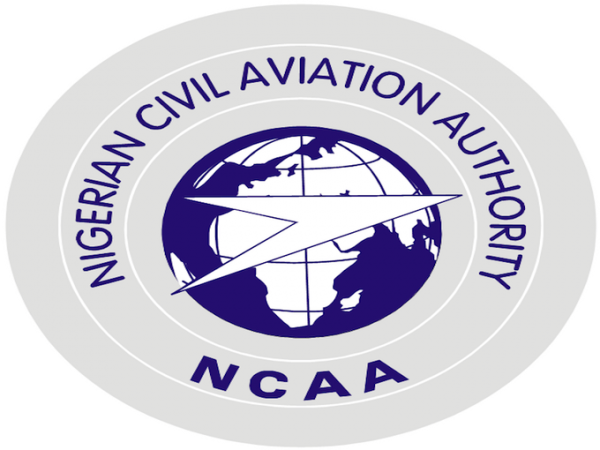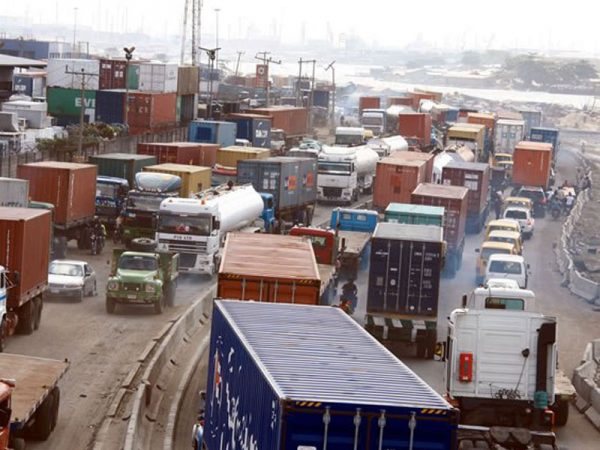How Eto Call-up System Reduced Cargo Cost By 60%

· No corresponding effect on ship turn around time yet
T
The Apapa traffic management company, Trucks Transit Parks Limited, operators of Eto Call-up system said it has reduced the cost of moving cargo from Apapa to warehouses and other destinations within Lagos by over 60 percent in seven months of its operation.
The Nigerian Ports Authority(NPA) Eto Call-up system took off in February, this year.
TTP Limited is a public private partnership(PPP) initiative which raised private equity investment with a key stake by NPA. It was borne out of the need to solve the Apapa perennial traffic nightmare.
The success report of improved traffic on Apapa access road came with observations from TTP Limited that Nigerian barge operators lack world –class barges to carry out a seamless barge- to -ship transfer of empty containers for faster, safer and cleaner container delivery.
Another observation is that all the licensed operating tank farms on the Tin Can port axis do not meet the oil and gas minimum regulatory standards of operations in the industry, and one of the infractions being lack of truck holding bays for their fleets of tankers.
Recounting their successes and challenges at the maiden press briefing on Thursday, the Chief Operating Officer(COO) of TTP Limited ,Mr. Temidayo Adeboye, said that they had reduced the Apapa traffic considerably as evidenced by the reduction in cost of cargo movement from Apapa to warehouses and other destinations in Lagos.
Before the coming of Eto, the cost of cargo movement from Apapa to other locations in Lagos was above N1million but it now attracts about N400,000 .
Further insights into the indicators, hold that a 20feet container now attracts between N200,000 and N300,000 as against between N750,000 to N800,000 within Lagos in the old order, while a 40 feet box that went for between N1,500,000 and N1,600,000 then, now goes for between N400,000 and N750,000. A freight cost within Apapa now hovers between N100,000 and N150,000 as against between N200 and N300,000 only.
While denying claims by some organized fleet owners that they currently pay between N50,000 and N150,000 per truck to access the port, Adeboye said they had eliminated multiple illegal payments along Apapa and Tin can ports access roads through synchronized Eto booking system, which he said cost only between N15,000 and N25,000.
Speaking on how the current flow of traffic in Apapa has impacted the turn around time of trucks, he said it now takes an average of 60 hours as against two weeks for a Reefer truck to make a turn around.
He said Flatbeg truck, now takes 62 hours; Empty container truck,90 hours; Export container truck,76hours as against the previous maximum two weeks truck’s turnaround time across these different types of trucks.
However, he did not interpret the corresponding impact of the improved Apapa traffic situation of the truck turnaround time on the current vessel turn around time in Nigerian ports. Nigerian ports have been on the worst scale in ship turn around time in West African sub-region for years now as a result of port access congestion.
Port observers believe that if this claim of improved port access does not impact on ship turn around time, then it remains unrealistic.
Before the coming of Eto, he said that an average of 4,000 trucks struggled to access the port daily, however, now, they schedule and batch an average of 3,000 trucks daily. Rather than have the trucks park on road shoulders as was the practice, truck now park in about 70 NPA approved parks from where they proceed to port after scheduled and batched via Eto application, Adeboye said.
On his claims that Nigerian owned barges are ship-side operationally deficient, the COO, said that the absence of a dedicated port or space for empty containers inside the port compounds the challenge of lack of barge –to- ship container transfer, making the movement of empty containers very un-seamless.
According to him,“We don’t have a space for empty containers as a port with our high volume of import as a country. So, our plan with the NPA in the next two years is that empty containers don’t have to go back to port by road because 50 percent of the traffic inward the port is empty containers.
“If you look at the quay side, over 60 percent of the containers there is empty trying to get loaded on the vessel even when the ship on arrival has not even dropped her goods. What we are saying in essence is that if you have empty container bays inside the port and you can use barges to come; it comes from one side and drops on the other side, it becomes easy to designate points of loading and offloading containers and they can be offloaded directly into the ship side by side with the barges that freight them.
“However, this is not possible now. None of the barges in Nigeria meets the international standards. There has to be a lot of investment in that sector to bring in world class barges that can guarantee ship side loading of containers with barges. If we are going to achieve that we would have solved a major problem in this sector. So, these are long term plans we have but it is a gradual process.” He said.
He said he had worked in oil and gas industry for years, as such knows that the oil and gas industry operators do to survive in the hash operating environment.
Adeboye maintains that they do not meet the industry’s operating minimum standards hence all the tank farms operating in Tin can port axis lack holding bays for their trucks, explaining that they constitute a major challenge to the call-up operation.
“The major challenge we have in the Mile 2 axis is the bad road which encourages extortion; because of the road construction going on. Another challenge is the oil and gas truckers. If you look at the entire tank farms operating on that Tin can-Mile 2 axis, I can beat my chest that none of the companies meets the oil and gas regulatory standards but they got the licenses to operate without a truck park.
“So, they have designated a full lane on the road for their own truck parking. This is a major challenge. This is also part of the things the Lagos State Government is seeking to address with the trailer park at Orile- Iganmu. It think they have gotten a new investor.
The parking lot can take 1,500 trucks, he stated, adding, “They may have to force the oil and gas tankers to use the space to distribute their trucks to their various tank farms in and out.
Immediately the road construction is over, we will hasten our plans to reduce human interference in the system.”
On the quality of trucks on the road, he said, “Gradually you will see an improvement in the quality of trucks in the system. It can’t be done overnight. The first time we started, we had only 9,000 trucks registered on our platform with about one thousand users but within a month we had over 60,000 trucks with about 8,000 users. The number even surged to 76,000 trucks.
“The Nigerian Ports Authority(NPA) has been carrying out inspection on trucks; it certifies trucks that can access the port and you must register and have a certificate. So, of that 76,000 that registered with us, only 17,000 have access to the port. Now, looking at the quality of trucks that have access to the port, do they even meet minimum standards? The answer is no.
“So, it is an on-going process. We will begin to see an improvement in the quality of truck in the system next year. Now, there are plans for the Federal Government to finance the acquisition of trucks for them. In the past, nobody was talking about truck financing. When the business starts flowing and investors see opportunities in them, they will pull out funds for massive acquisition of trucks, Adeboye assured.







